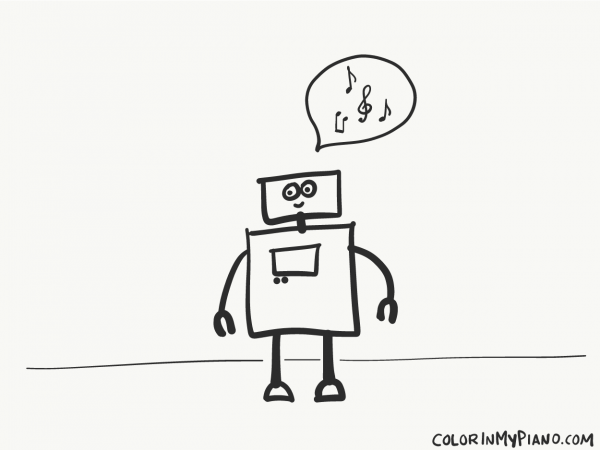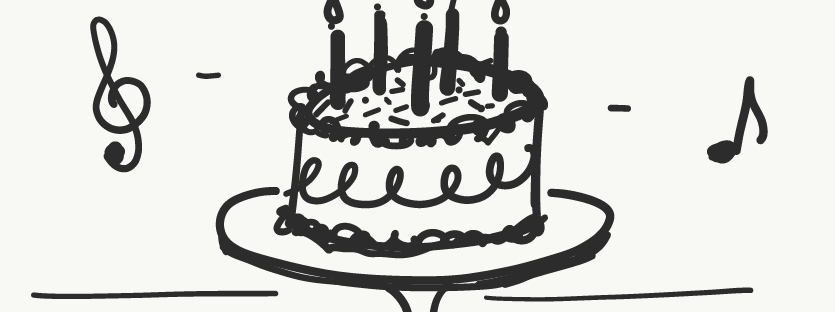[Following up on the post from last week about helping students play with expression…here’s another analogy I use with young piano students who need to think “beyond the notes”.]
If playing the piano was about merely pressing the right buttons at the right time, we might as well hire robots to do it for us.

It’s funny to imagine, isn’t it? But really: Why would you bother taking piano lessons if you could have a robot play your pieces?
What’s the difference between a robot playing the piano and YOU playing the piano?
The answer has to do with the fact that music isn’t just about “the right notes at the right time.” Music is about expression. Instead of just learning how to get the notes and rhythm correct, we can learn how to make your piece sound like popcorn, or birds, or a storm, or thousands of other things. To me, this is the fun part! This is the best part of about making music.
So, let’s talk about expressive music making. How would a robot play this piece? How would YOU play this piece?
What can you do to make this piece sound more like the subject suggested by the title? Why do you suppose the composer chose these dynamics and articulations for this piece? What else can you do to make the piece sound more like the title?
Only YOU can play the piano like you do. Don’t be a robot at the piano!




 For piano teachers, it’s that time of year: recital season! We are in the process of coaching our students to polish and perfect their recital selections.
For piano teachers, it’s that time of year: recital season! We are in the process of coaching our students to polish and perfect their recital selections.